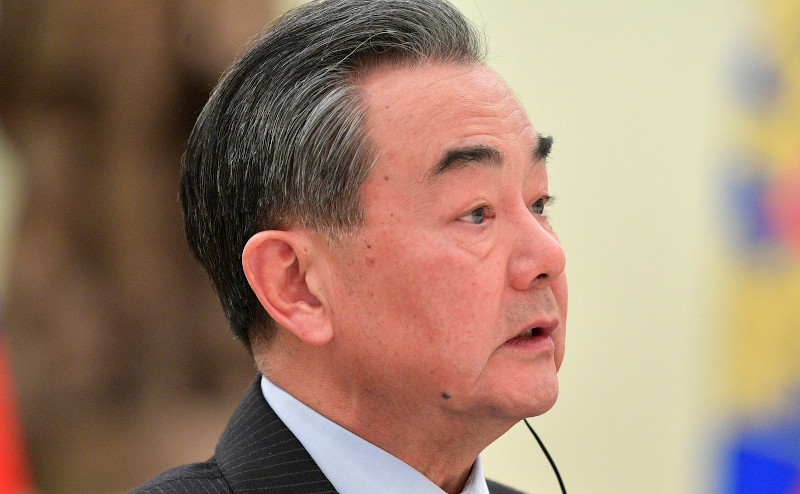
The long arc of history dominated the discussion between China Foreign Minister Wang Yi and former Australian Prime Minister Paul Keating. “In the main, (it) was a big picture discussion about the geostrategic balances and influences in the world,” Keating said.
This conversation was different from the discussions in the Australia-China Foreign and Strategic Dialogue between Yang Yi and Australian Foreign Minister Penny Wong. It was ironic that this meeting took place at a time when Defence Minister Marles was hosting UK Defence Minister, Grant Shapps and committing to further AUKUS expenditure.
Minister Wong developed a new mantra of “Australia will be Australia; China will be China.” Former diplomat in China, Jocelyn Chey observed this was uninspiring matter of ‘que sera sera.’
A later meeting meeting with senior business leaders hosted by the Australia China Business Council was focussed on the hard realities of trade.
Council President, David Olsson reflected that for businesses operating in or with China, having regular and productive communication between governments provides more confidence in the markets and predictability in commercial outcomes. China’s economic development offers significant potential to Australian exporters for new products and services.
The lifting of anti-dumping and countervailing duties on some Australian goods was an important step forward in improving trade relations. Australia has also removed some trade restrictions on Chinese goods.
Both China and Australia resolved these issues using the WTO rules.
Wang Yi raised Australian curbs on Chinese investment and products, asking for a ‘‘fair, just, transparent and non-discriminatory business environment for Chinese enterprises to invest and operate in Australia’’.
The prosperity of the Australian economy is very dependent on China’s prosperity so the hope now is that this economic complementarity can again continue smoothly. This was a core sub-text to the meeting.
This enhanced and improved political trust because these face to face meetings make it possible to sensibly discuss issues and differences. These diplomatic conversations build trust. They are a strong contrast to the previous belligerent scolding of China which destroyed trust.
The Australia China relationship is akin to the slow recovery of a patient after a serious road accident. Recovery is on the right track but things will never be the same again and this creates an uneasy tripartite quandary for Australia where policy is not quite consistent with the reality of China and the recognition of its legitimacy in the region.
Former Prime Minister Keating argues the country must seek security in Asia, not from Asia. It is one of the competing ideas shared by the current administration. Over the past two years, Australian Foreign Minister Wong has shown that some degree of Australian security in Asia can be achieved through the exercise of diplomacy.
Her diligent work bore fruit at the ASEAN meeting, although the final communique did not fully reflect Australia’s preference for a statement against China. Agreements with Tuluva and the Solomons are a tribute to Australian diplomacy in the Pacific.
The diplomatic importance of the meeting with foreign Minster Wang Yi was more about formalising the proposed visit by Premier Li Qiang as another step along the path of stabilisation.
Despite Minister Wong’s preferences, there are others who believe Australia has to find its security from Asia. This is shown with the strong support for the AUKUS program which is an offensive program designed to protect Australia from Asia. For this group it seems that the idea of seeking security in Asia means working more closely with the United States to achieve its security objectives.
The simultaneous commitment to AUKUS with all its offensive strategic implications and to diplomacy, poses an interesting balancing act for Minister Wong and Australia.
Former Prime Minister Keating has a deep understanding of the arc of history and he led Australia’s effective engagement with Asia. He favours a foreign policy that is not dominated by the Defence and security forces. He favours the diplomacy deployed by Australian Foreign Minister Wong. He understands that Australia must come to terms with the legitimate interests of China and respect China’s domestic political choices.
By reaching out in a diversity of meetings, Minister Wang Yi is in a better position to develop a broader view of the situation in Australia so China decision making can be more informed.
Political trust has improved because these face to face meetings make it possible to sensibly discuss issues and differences. These diplomatic conversations build trust. They are a strong contrast to belligerent scolding which destroyed trust.
Foreign Minister Wang Yi departed Australia with a clearer idea of these competing perspectives and that will inform future Chinese policy decisions. There is less certainty about how Australia may modify its policy thinking because the belief that ‘Australia will be Australia; China will be China’ leaves little room for adjust to the arc of history. The world is changing but Australia remains committed to old perspectives.




